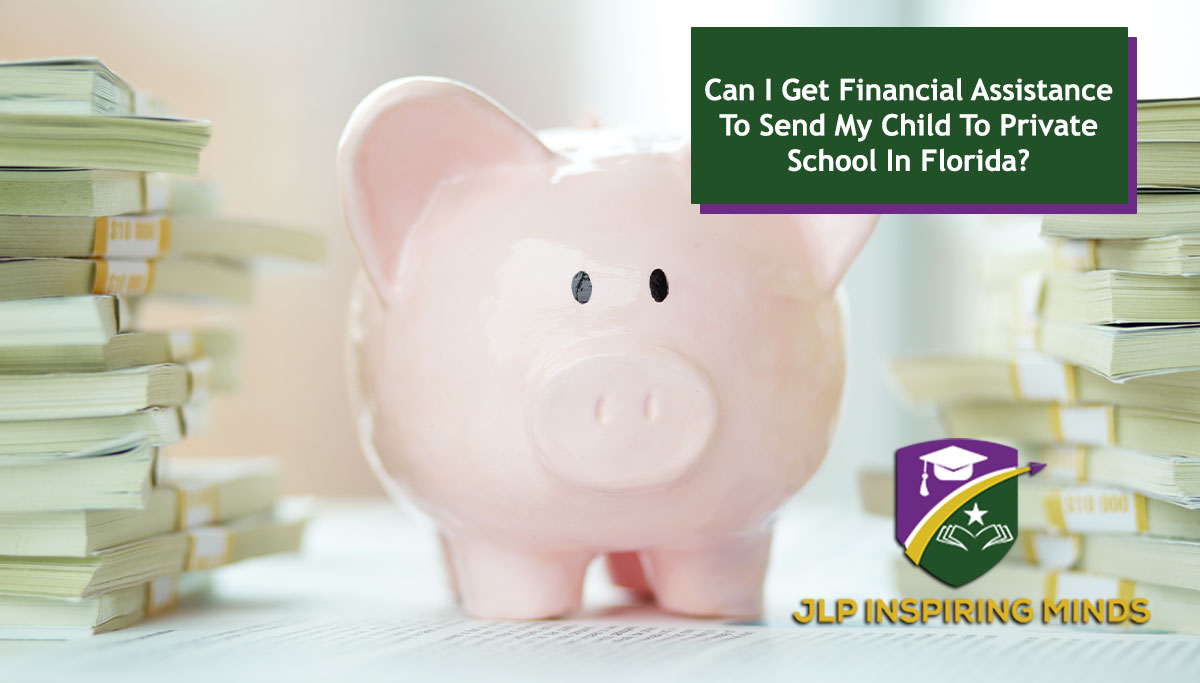
Do you want to send your children to a quality private school but need financial assistance? On March 27, 2023, Gov. Ron DeSantis took a monumental step toward universal school choice by signing the school choice legislation. With this update, state-funded scholarships are available for Florida students in grades K-12 who wish to attend private schools.
Florida is the fourth state in 2023 to sign universal school choice into law, but what does this mean for residents?
As a committed school with a child-centered approach to learning, we’ve put together all you need to know about the new legislation and how parents can apply for financial assistance to send their child to a private sector school in Florida.
Public Vs. Private School In Florida
School choice impacts the development of a strong mind, a child’s attitude of inclusiveness, feelings of positive self-worth, and quality of education. Both public and private schools can offer these valuable attributes, but what is the difference?
Public schools in Florida are funded by the government and must adhere to state educational standards. Class sizes are typically larger, introducing children to a diverse student body and various academic programs.
Private schools in Florida operate independently from the state, and education is funded by tuition fees and private sources. These schools, such as JLP Inspiring Minds Private School, have a low student-to-teacher ratio, allowing for a more personalized approach to learning and other benefits of small class sizes.
The decision between public and private education depends on various factors such as individual preferences, financial considerations, and the specific educational needs of each student.
Now, with the historic legislation expanding school choice options in Florida, financial restraints are not as limiting.
Universal School Choice In Florida
On March 27, 2023, Gov. Ron DeSantis signed House Bill (HB) 1, eliminating eligibility restrictions and the enrollment cap for all students in Florida and thereby expanding school choice options.
Education In Florida
Did you know that Florida has 1.3 million students enrolled in full-time learning? Since the pandemic, there has been widespread demand for school choice and parental rights.
Lockdowns led to discussions on the government’s authority on education and the learning content within the public school curricula.
Across the United States, at least 32 states have programs that provide access to private school tuition via tax-funded school choice programs. These methods include tax-credit scholarships, vouchers, and education savings accounts that provide an estimated $4 billion for 690,000 students.
Recent Legislation In Florida
HB 1 removes the former financial eligibility restrictions, providing access to various school choice options for any student eligible to enroll in K-12. In the process, it expands school choice options for all 1.3 million students in Florida.
By signing the bill, Gov. Ron DeSantis approved the expansion of taxpayer-funded school vouchers and broadened school choice, removing income restrictions and enrollment limits.
The state of Florida now gives families with children in elementary, middle, or high school the opportunity to receive a school voucher equal to the amount of funding their local public school would have received if their child was in attendance. These vouchers are worth approximately $8,500 each.
Rather than limiting the voucher to public education, the funds can pay for private school tuition and homeschooling resources (as long as state guidelines are followed). The legislation expands the scope of authorized uses, including students with higher family incomes.
Who Is Eligible?
The legislation, which went into effect on July 1, removes the need to meet specific income requirements as well as the limit on how many families can join the existing Family Empowerment Scholarship for Educational Options program.
As school choice is expanded to all Florida families, the new legislation can potentially affect every student. Even so, eligibility requirements are as follows:
- Priority will be given to students whose household income is below 185% of the federal poverty level
- Second-tier priority is given to families at 185% to 400% of the federal poverty level
- Priority will be given to students who are in foster or out-of-home care
- Students enrolled in public school will not receive scholarships, instead allotted finances are given to their public school programs
Note: The federal poverty level for 2023 is determined by how many family members are in a household.
If a student is already attending a private school, religious school, or an approved homeschooling nonprofit program and the voucher is not needed immediately, they can put it in an education savings account.
The account can hold up to $24,000 until the student turns 21, gets a high school diploma, or decides to attend a public school. Even better, these vouchers can be used for school-related expenses other than tuition — such as instructional digital materials, fees for standardized tests, or tutoring.
Students with disabilities can also use these funds for assistive technology devices, certain therapy animal services, and voluntary preschool.
Impact Of Tuition Vouchers
The signing of HB 1 has been described as a “monumental day in Florida history” by Florida Education Commissioner Manny Diaz, Jr. The development has confirmed Florida as the undisputed leader in school choice.
He continues, “Thanks to Governor DeSantis and the legislature, we continue to be the undisputed leader in school choice. Florida will always make good on our promise to ensure every child has access to a world-class education.”
The voucher programs will empower families to choose the best school for their children, and the increased competition will positively impact nearby public school systems.
What To Consider When Choosing A School
With the new legislation opening doors for quality education, parents and their children are afforded more choices. When choosing the best school for your child’s future, consider the following key considerations.
- Academic programs and curriculum offerings
- Class sizes and student-to-teacher ratio
- Quality of teaching faculty and their qualifications
- Extracurricular activities and clubs
- Location and proximity to home
- School culture and values
- Parent involvement opportunities
- Safety and security measures
Find out more about what to expect from a private school program.
Quality Private Education In Tamarac
The passing of HB 1 made Florida the latest state to broaden access to public money for private schooling, meaning that parents can get financial assistance for private schooling in Florida.
At Inspiring Minds Preschool and JLP Inspiring Minds Private School, we prioritize quality education, a positive learning environment, and embrace diversity. Our private preschool program and K-5 private school empower development through a hands-on approach, small class sizes, and personalized attention when necessary.
Find out more about our school tuition and scholarship options, and start the journey of quality education today.
